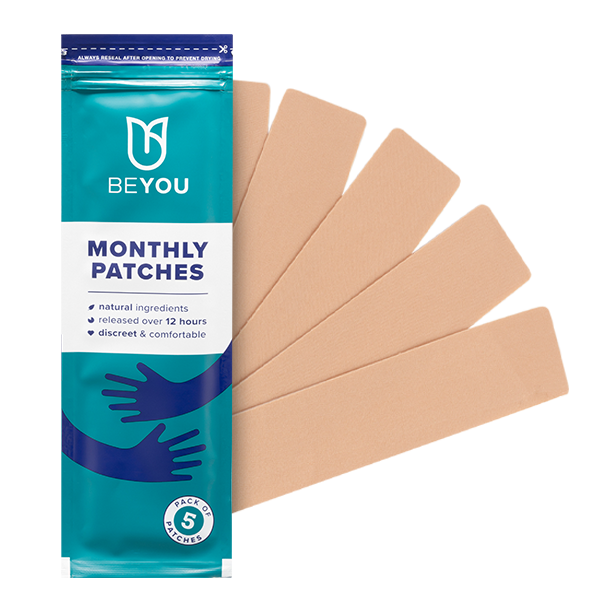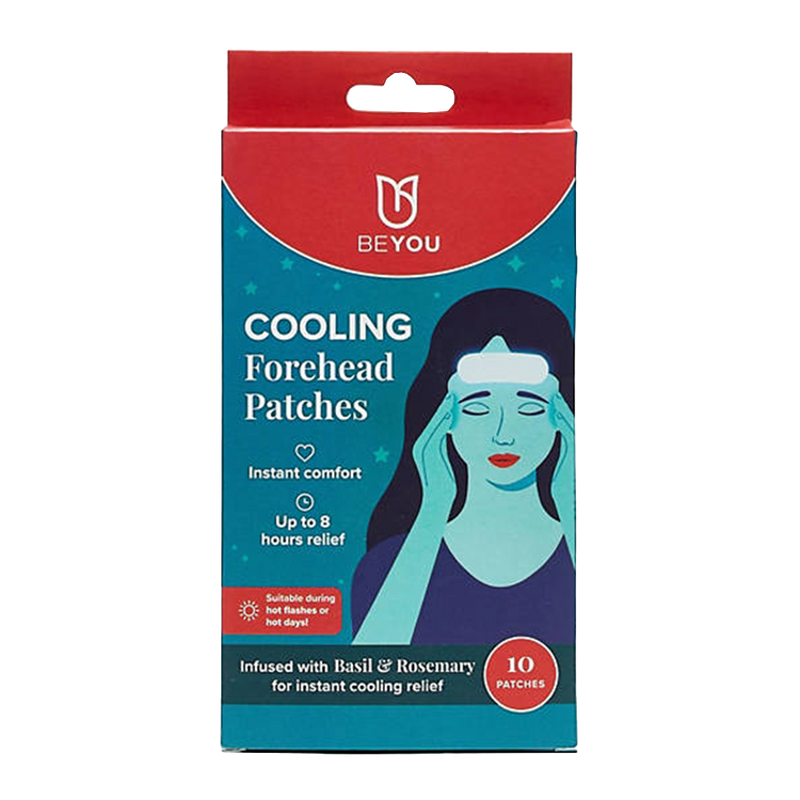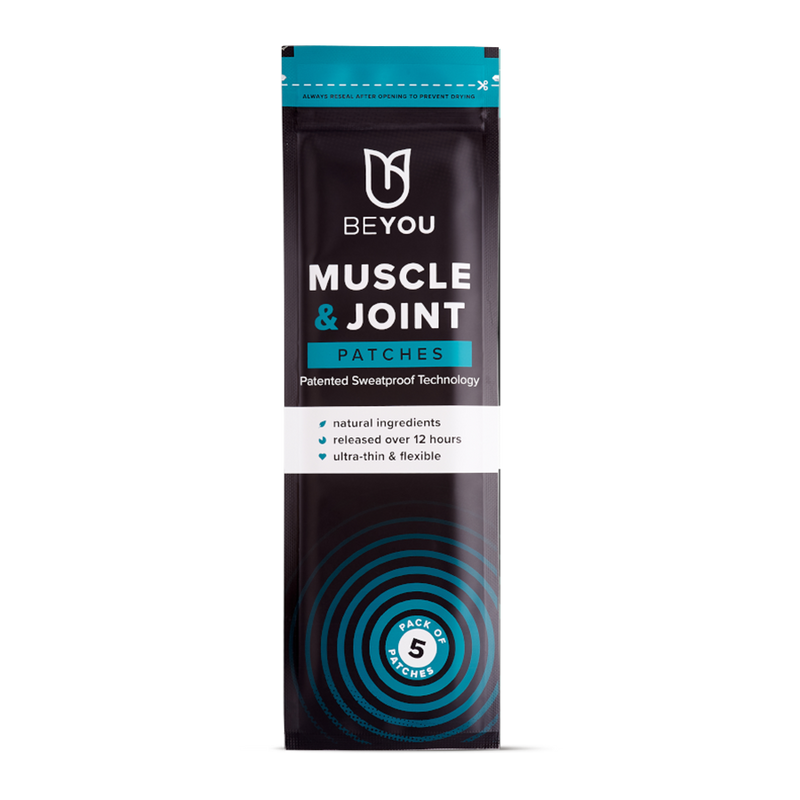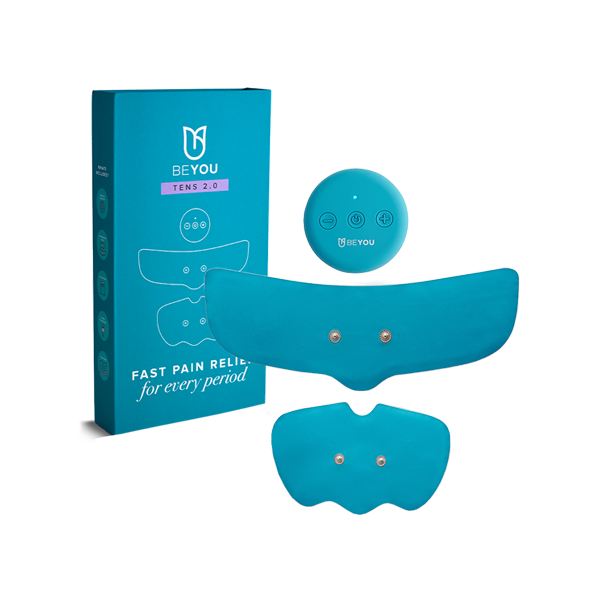Podcast Diaries: The Flow Down Episode One
Why we love this episode:
At BeYou we love that each and every woman has a different relationship with her body and her period. In this episode of The Flow Down both Jess and Stephanie dig deep into why they started this podcast and their relationship with their cycle it like.
Both Stephanie and Jess came into health complications after a period of high stress and even burnout, as many women also experience. However, they both go on to explain how they refused to believe they couldn't recover and how they started on a journey to love their periods. We're sure you'll love this episode just as much as we do so make sure to give it a lesson below and subscribe to The Flow Down on your favourite podcast app.
Listen & Learn:
Transcript:
(singing) Welcome to The Flow Down. I'm Stefanie, a women's health coach.
And I am Jess, a journalist. And we are two good friends who are here to break the silence around periods. Thanks for tuning in (singing). Yeah, The Flow Down has launched.
We are live. We did it.
We did it Stef. We are here talking about periods and it's sort of awkward, but we're doing it anyway.
We're really doing it Jess. We have been talking to everybody about our periods.
Everybody. Yeah, we definitely have been having some very interesting conversations over the last few months. Some really funny ones too. Remember when one of my journalist colleagues actually thought I was making a podcast about periods, like as in the punctuation mark?
That was hysterical.
Oh God. Yeah, and we have gotten so many questions about why exactly we're making a podcast about periods. Stef, do you want to kick us off? Why do you feel called to talk about periods?
Last year I had this moment of reflection, thinking about my work with women and I asked myself this question, "If you could scream one thing out from the mountain tops for all the world to hear, what would it be?" And the answer came to me loud and clear that periods are important. Periods are important.
That is the point that I so badly want to get across in these conversations. The menstrual cycle is a gauge for how well things are working in our bodies. And I like to look at it as a gauge for our fertility too, given that the menstrual cycle is this hormonal process that prepares the body to get pregnant each month.
Our cycles have literally been deemed a vital sign, and I've seen both in my own life and through working with women as a health coach, what a positive impact understanding your cycle can have on how you feel, on your fertility, on your life.
And yet most of us are missing out. We're missing out on those insights our cycles are giving us. That leaves us vulnerable. So I'm looking forward to shining a light on the importance of our periods, answering practical questions you might have, and even helping you move closer to a place where you realise you not only have control over your cycle, but you also see her as a source of power.
Amazing.
And all of that really hinges on us being able to actually talk about our periods, which I know is a driving force for you, Jess. So can you tell us why you feel called to be here talking about periods?
Yeah. So I am really motivated by the fact that periods are still so shrouded in shame and mystery in our culture. I've spent over a decade working in the news business where it seems like literally no topic is off-limits these days. And yet menstruation is, it's too messy or too personal or too gross.
Or whatever the reason, it's incredibly stigmatised and I think that there's this general sense that we just can't talk about our periods, which if you think about it doesn't really make that much sense considering that half the population experiences a period or they will at some point.
So I wonder why it is so hard to talk about our periods, not only with men but even with our girlfriends and the women in our families. And as you pointed out, Stef, the shame and the stigma can actually have consequences on our health and beyond. So that's why I'm here, to start the conversation, to share our stories and other women's stories, and to de-stigmatise the topic. And I definitely have a lot to learn, myself.
So glad we're here, Jess, together. Oh my gosh, the first month that we started working on The Flow Down, Jess and I both got our period on the same day and we're just going to take that as a sign that we're on the right track.
Not only the same day, we both got our periods within the same hour of each other.
It was wild. It was so wild.
So we're going to take a short break and when we get back, we're going to tell you a little bit more about us. So Stef and I met in 2012 in a cafe in Buenos Aires, Argentina, where we were both living.
Stef had recently moved with her husband, who's from Argentina. We swapped brief intros and she told me that she was just getting started as a health coach, but that she had previously lived in New York City and worked in the fashion industry. I was like, what?
Instantly hooked and wanted to know more. So Stef, can you tell our listeners about that incredible journey? How did you go from working in the fashion industry to being a woman's health coach?
Yeah, so I started working in the fashion industry in New York City right out of college. My first gig was as an assistant buyer for a big department store, which at that time in my life was a dream job for me. It was like the cool thing to do and that mattered to me then.
I got to get dressed up for work and walk up Fifth Avenue, so that was all fun. But I was also working long days and long nights, and soon after I started I'd gotten promoted to the most coveted office in the company and that meant I was working with all of the big designers.
So I was going to fashion shows after work and parties after fashion shows. I was all in, career-wise, trying to climb my way to the top of the ladder, can't stop, won't stop. And at some point, it felt like that wasn't even enough, so I decided to start training for a triathlon.
Of course, my boss was thrilled, because that meant I'd stay in shape even though I was a size zero at the time. There was a lot of pressure to look a certain way in our office, but I was waking up at 5:00 AM to run 10, 15 miles up the East Side Esplanade of Manhattan and I was staying at the office until 8:00 at night, then going up to swim practice at Asphalt Green.
And I'd walk out of there and get into a taxi and my hair would be frozen, because New York winters, and if I wasn't swimming, I'd be going to the gym with my boyfriend, now my husband. And when it came to my diet, I had the same amount of discipline and determination.
I religiously followed the advice that I was hearing all around me and restricted myself to a diet of mostly grains, processed grains, all those low-fat foods, fruits, vegetables, and some nuts and some fish, which were like an indulgence. And I could go on and on because, Jess, you know, I love to reminisce, but the point that I want to make is that I thought I had it all figured out.
I thought I had it in the bag when it came to being healthy. I had this dream job, I had this exercise routine, I had this really clean diet, except I stopped getting my period for months, which turned into a year and years. And for a while, I just turned a blind eye to it because who needs a period anyway?
But then at some point, it occurred to me, "Well wait, if I'm not having a period I probably can't get pregnant." And I was by no means ready to get pregnant at that point, but I did have it clear that I wanted to be a mom one day if I could. So I went to the doctor and sat there as she told me that I probably would never get my period back, that I had forced my body into early menopause.
And that, as you can imagine, that was devastating for me to hear.
Yeah. How old were you then?
I was in my early 20s.
So she just told you like, "That's it. You're not going to get it back?" was kind of the final answer.
That's it. And of course, I was like, "No. No way. That can't be, I cannot accept that. What can I do?" And she's like, "Well, if you would feel better bleeding every month, you can go on the pill." And my immediate reaction was, "No."
Looking back, I think part of my resistance at that time came from having watched my dad as I was growing up, he had Crohn's disease and spent over a decade on steroids. Now taking the birth control pill is by no means the same as taking steroids, but I was especially sensitive to the idea of having to take a pill.
So there was that, and then there was this other part of me that just wasn't satisfied with that answer. There was a part of me that said, "Wait, that's not going to fix the fact that I'm not ovulating and not getting my period."
So when did you decide that you weren't going to accept that as a diagnosis? Did you have an epiphany or did you just sort of know?
Well, for a while I kind of just wallowed in it. I did not want to accept that my body was broken. You know, being a perfectionist, it's really hard to accept that something's wrong. And if something was wrong and I needed to give attention to that, that would hold me back from really all this striving that I was doing.
So I really was mad that I was being stopped in my tracks, and for a while to deal with that, I just ignored what was happening. Just kind of hoped that, "Okay, maybe my period will just show up again one day." But hormones don't work that way, unfortunately. And fortunately, at some point, I still remember the moment, I was just ready to take the reins.
It was actually one night after work I had come home and was just kind of sitting after that long day. And it was this moment where it almost felt like I had landed back in my body and I was like, "Whoa, this is everything. This is what matters."
And from that moment on, it was like, I matter. I matter just as much, even actually more than all the voices around me, all of those shoulds. And so that meant taking the reigns and trading in triathlons for restorative yoga, going back to school to become a health coach, studying, learning everything I could about the menstrual cycle and fertility and what it takes to heal.
And then making the right changes to my diet and my lifestyle, and I naturally got my period back. And now I get to help women all around the world do the same.
How long did it take for you to get your period back?
It took over a year, and I spent a lot of time regretting that time I wasted saying, "Who needs a period?" or being mad at my body. I really held onto that heaviness for a while, of regret of not having taken charge sooner.
But it was a really hard time in my life. Those were hard years, but I wouldn't trade them for the world. There is a lot of good that came out of losing my period. And besides having my daughter, one of the best things about all of it is that it led me to my calling as a woman's health coach working in menstrual health and fertility.
Which you are amazing at, and you have helped so many women, including many that I know, and I can't wait for our listeners to continue to learn more from you. And I also just want to tell everybody that even though Stef left fashion, she remains the most fashionable person that I know. She always looks incredible.
I will always love fashion. Thank you for saying that. I know that really your story relates so much to mine. We share a lot in common about striving and perfectionism and even more.
Totally. Your memories of being a perfectionist really resonate with me, like I'm sure they do for many women. And like you Stef, I definitely spent a good number of years doing whatever it took to be thin and battling my body. I had an eating disorder in my early 20s, so it's just so special to be able to talk about that here now on the podcast.
Well, when I met you, Jess, you were at a crossroads. On the one hand you were so passionate about your career as a journalist and wanting to share important stories with the world, but then, on the other hand, you were so clearly feeling misaligned with the demands of the job itself. I know that it has been a process for you. Can you tell us more about your journey and how you've come to a place of respecting your body?
Definitely. Yes, I am a proud journalist. I love being a journalist, but I have definitely struggled over the years with the pace of the job, the competition, the deadlines, just all the bad news all the time. It really takes a toll. And on top of that, I also have anxiety, which has made everything that much harder.
I think during much of my 20s I was pretty good about pushing through the anxiety to a certain degree. I managed to do everything pretty well, just like you Stef, I was going for my dreams, I was advancing, doing a good job, and yet behind the scenes I was not feeling well. I was always a nervous wreck.
I was a total perfectionist and I worried about everything. Sometimes I felt good and then other times I would have extended periods of time where I had insomnia and panic attacks and emotional extremes, and I would just look around me and feel like, "Wait, I can not cope with normal life things and stressors like other people can."
And the worry got worse and worse over time, as it tends to when we ignore it, and around the time I was turning 30 when I was living abroad, my anxiety was peaking. It was just at another level and it was beyond the daily stress of work or the challenges of living in another country. No, I was panicked and just hitting an emotional low.
And I kept going and trying to push through it like I always had, but something different happened this time. My body had a freak out. Something was super off with my health. I had a weird infection that wouldn't go away, even with antibiotics. I was extremely exhausted, like extremely. My hair and my skin were dry and flaky.
My hair started falling out. My menstrual cycle was really short. I think I was getting my period like every 22 or 23 days. Basically something was off and I couldn't ignore it. So I went to the doctor and I tried to get some magic pill that would miraculously change everything, but nothing worked.
And so then, of course, I grew even more nervous and more stressed and panicked about my health. So anyways, after a few months of this, I had an intuition, kind of like you described Stef. I had learned to think about being anxious as normal, but no human body is meant to sustain so much pressure and stress and anxiety for such an extended period of time.
I heard my body loud and clear and it was sending me a message that I needed to stop, I needed to pay attention, and I needed to improve. I didn't want to put myself through this stress anymore and I just knew that this wasn't what life was supposed to feel like all the time. So I started making changes.
We had met, so I began working with you as a client, which was really great. I started to make shifts in my lifestyle, in my diet, learning how to say no a lot more. I did find out I had thyroid disease and I got on hormones, which also really helped.
And I would say that that time, six years ago, is when I truly started to change my perspective on my health to really understand the link between mental and physical health and most of all to learn to listen to my body.
Thank you for sharing that Jess, because it's a whole other topic. There's so much stigma around anxiety, and I know we'll get to that here in our show too. But can you tell us more about that turning point? What sparked you being ready, and then were there challenges along the way?
Yeah, I mean at the time I was ready because I was desperate not to get any sicker, but over time I began to see not only the benefits to my health but also that it's possible to live without so much anxiety. And that is miraculous to me. That is what fuels me. So ever since then, I've been on the journey to heal it.
I've learned that what that means for me is different than for anyone else, and I've learned to really, really listen to what works for me. That is so important. Everybody's different. So I personally had success with therapy, with being really open about my mental health with friends and with my incredible husband, with journaling, meditation, with simple things like cutting down on caffeine and shutting down social media and also not skipping meals.
Always having good snacks around so my blood sugar doesn't drop and spike, and I've learned how to let go of certain outcomes when it comes to work and performing and things like that. It's still a process, but I've definitely come a long way and I've learned how to listen better to the messages my body's saying.
And I just want to add that as part of that, and I'd really say thanks largely to you, Stef, I have found a completely new relationship with my period and with other aspects of being a woman. I've really learned to appreciate how as women that were constantly in flux hormonally throughout the month and really throughout our lives.
We're not designed to constantly be performing, constantly be producing, constantly be pushing through. We're not the same throughout the month. The body has cycles, it has highs and lows. And I think being able to be more in sync in that way has actually really helped my anxiety because it keeps me open to the reality that things are constantly in flux, things are changing, and it keeps me less attached to any certain outcome.
So I'm really excited to continue to explore these things on The Flow Down. I know so many women struggle with mental health issues and I look forward to talking about that and the relationship these issues have with our cycles.
Yeah, and it has been truly amazing to watch you evolve, Jess. I personally am so excited for all the world to see just how brilliant and how big-hearted you are.
Thanks, Stef.
Finally, earlier this year, the moment was right for both of us. We knew that having these conversations publicly could make a difference.
Yep. We definitely know they can and we just want to also say upfront that we know we have a lot to learn about having conversations about periods.
We know that this is a very personal subject for many people. We are not trying to tell anybody what to do or what's best for them and their body.
For instance, we know that there are people who bleed who don't want to.
And we also know there are people who would like to get their period, but who don't or can't, which could be due to the gender assigned to them at birth or to other factors like disease or early menopause.
We want to hear and explore the spectrum of stories, even the ones that don't fit into some clear cut narrative.
So in each episode, we're going to tackle some aspect of menstruation. Some weeks it will be Jess and me getting real as we talk about our cycles and how we're feeling.
Other weeks we'll bring in friends and other special guests to interview and share their stories.
Of course, we'll share tips and insights with you, provide resources, and answer your questions along the way.
We are so eager to let you see for yourselves, so to celebrate we have released two additional episodes this week, available now. Check out Episode Two, which is a throwback to the awkward days when we got our first periods, and Episode Three where we interview the amazing drummer and period activist, Madame Gandhi.
Just a reminder, I'm a health coach. I'm not a doctor. The information I share here through our conversations is meant to help you create a better understanding of, and a more intimate relationship with your body. I encourage you to make your own healthcare decisions based upon what you know about your body in partnership with a qualified healthcare professional.
Last but not least, we want to hear from you listeners, what do you want to hear about on The Flow Down, or do you have a question about your own period that you would love us to explore?
Whatever it is, we would love to hear from you, you can email us at hello@flowdownpod.com or call us and leave us a voicemail at 949-456-FLOW.
Our awesome theme song is Crimson Wave performed by Tacocat courtesy of Hardly Art Records.
Thanks to everyone who helped us get here today. You know who you are.
Thank you so much.
Thank you (singing).
Show notes:
We discuss why we think it’s important to start a conversation about periods. Plus, we tell you about our own journeys away from perfectionism and anxiety -- and admit we didn’t always give our menstrual cycles the TLC they deserve. Also, what you can expect to hear on The Flow Down. We’re so glad you’re here.



